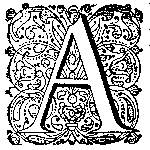Ancestral Monuments, Iconoclasm, and Memorial Culture in the Sixteenth-Century Low Countries
DOI:
https://doi.org/10.51750/emlc10007Keywords:
funeral monuments, memory, iconoclasm, Protestant Reformation, archives, genealogy, épitaphierAbstract
This contribution assesses the impact of the Protestant Reformation and iconoclasm on the memorial culture of tombs, epitaphs, and rituals in the Low Countries (c. 1520-1585), and analyses the consequences these events had on ancestral remembrance. Demonstrating how Protestant critiques and iconoclastic attacks fundamentally endangered the archival function of churches, it argues that this imminent threat to memory provoked a heightened awareness of the ancestral past in the later sixteenth century. Most significantly, it shows that this precarious situation led to the genesis of a new type of commemorative manuscript, the épitaphier, in which heraldic, genealogical, and other information on various types of memorial monuments in churches was recorded. In tracing the production and dissemination of these épitaphiers, the article casts new light on the pan-European heraldic and ‘genealogical craze’ in this period: while English scholars have emphasized social dynamics as explanation, this essay puts forward the religious debates as a hitherto neglected factor, and demonstrates how the two interlocked.
Downloads

Published
Issue
Section
License
Copyright (c) 2021 Ruben Suykerbuyk

This work is licensed under a Creative Commons Attribution-NonCommercial 4.0 International License.





